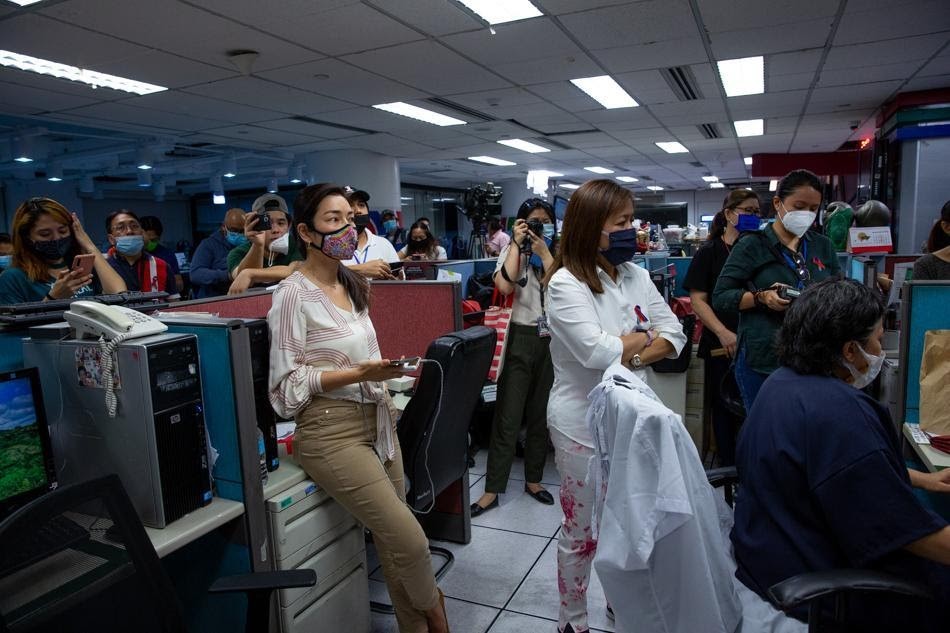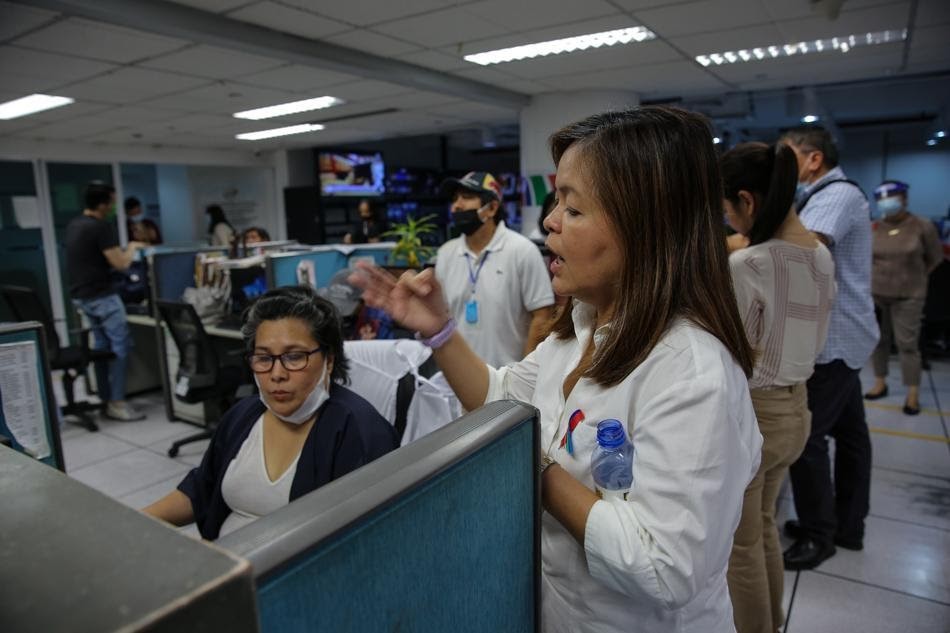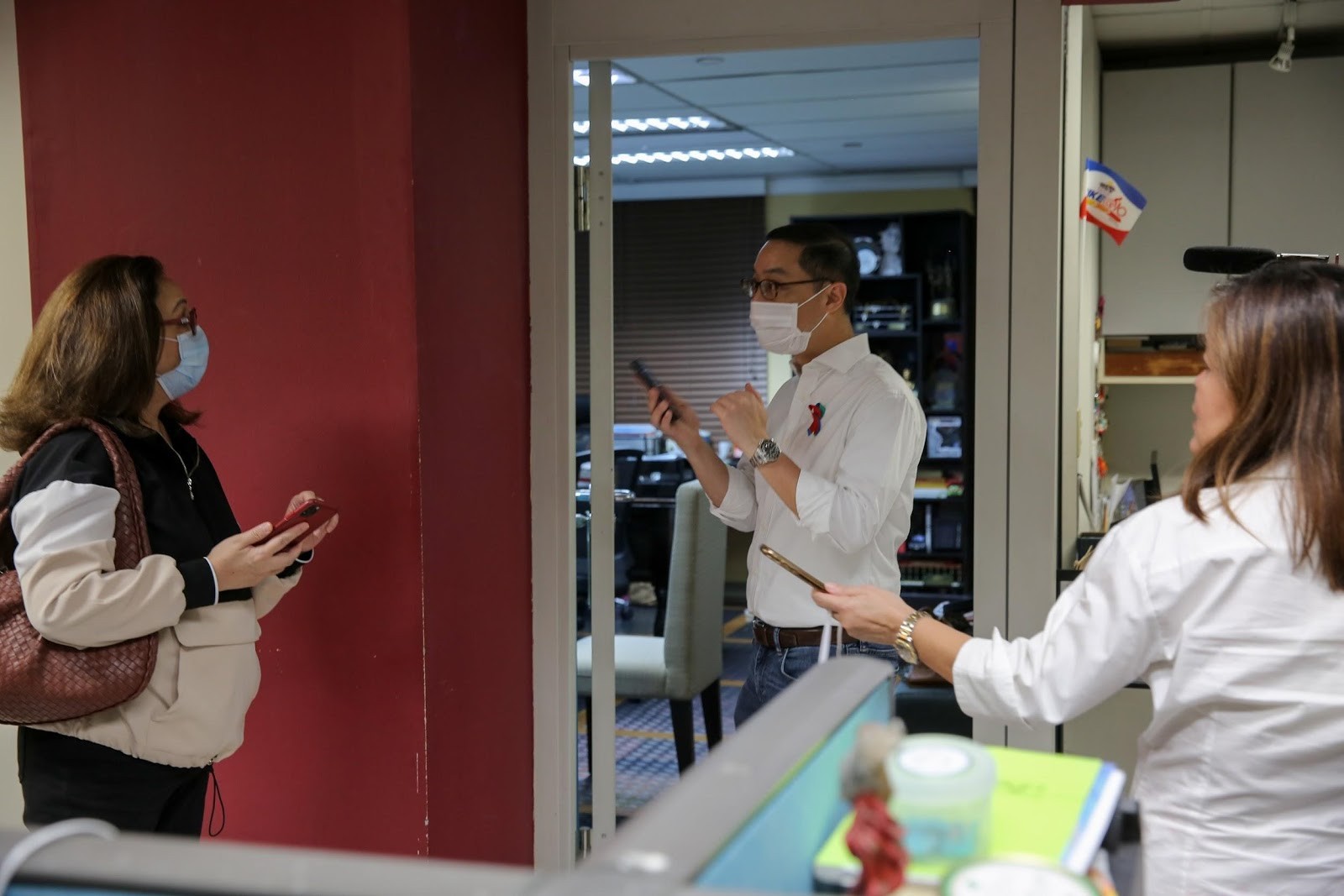
The year 2020 opened almost like any other year. I knew that at the very least, it would be challenging for me and the rest of ABS-CBN. After all, our franchise was set to expire in May. Most of us were still hungover from our annual Christmas and New Year break when we were jolted with one big news story after another — all of them bad. The raging bushfires in Australia, the threat of war between the US and Iran, Trump’s impeachment trial, Kobe Bryant’s death, Brexit.
News stories on coronavirus broke at a time when our news teams were still covering the lasting impact of Taal Volcano’s eruption. Evacuation centers housed displaced residents. Our own public service teams distributed relief goods.
Even before the World Health Organization declared the coronavirus a pandemic, our newsroom was already dealing with questions and fears over health and safety. COVID-19 posed a challenge so big it changed every newsroom’s editorial decision-making protocols.
We had to talk about deployment. How far should we go in covering the areas where patients visited, or lived? How much of a risk were we willing to take in sending our reporters and crew to hot zones and suspected COVID-19 areas?
“ The spread of this virus has affected our lives and forced us to make changes in the way we do our jobs as journalists. What has not changed is the vital role of news media in times of crisis. ”
This was a tough balancing act that required a considerable amount of introspection and reinvention. As news chief, I am responsible for the well-being of our entire news team so I had to think first of their safety. My biggest fear at that time was the possibility of a reporter or cameraman catching the virus in the line of duty, and infecting their families.
We’ve always respected individual choice whenever faced with sensitive or delicate assignments. So the first important task was to look after our journalists’ safety. We had to research best practices and consider practical situations in the Philippine setting to come up with safety guidelines.
In the middle of March, I wrote to the news team: “The spread of this virus has affected our lives and forced us to make changes in the way we do our jobs as journalists. What has not changed is the vital role of news media in times of crisis." The declaration of a community quarantine in the entire Metro Manila presents additional challenges and limitations to our coverage.”

We limited the number of teams sent to the field and restricted out-of-town and overseas travel. Some journalists had to work from home, a phrase unheard of for any reporter before this pandemic. We started interviewing news sources using the-now-famous Zoom app.
We booked hotel rooms and provided shuttle services for those who covered our frontliners and various communities, helped in the distribution of relief goods, and continued reporting to the newsroom and the studios.
COVID-19 kits were provided to all teams deployed to the field. Face masks and alcohol became basic necessities. The personal protective equipment (PPEs) that our frontliners desperately needed in those early days were hard to find. It would take weeks before we could purchase those PPEs for our journalists that gave us enough confidence to allow them to cover ERs and other hot zones.
Mindful of the need for contact tracing, we asked our news teams to have a daily journal of their activities — where they went, who they met and talked to, where they ate.
Several journalists had to go on self-quarantine for up to two weeks after the slightest exposure to news sources reported to be PUIs or who tested positive for COVID-19. Disinfecting the newsroom, studios, control rooms and our radio booths became mandatory, as with the placement of footbaths and alcohol dispensers.
We also revisited our editorial protocols. We had to make sure our reporting provided accurate information on coronavirus and did not cause panic. Considering the confusion in the initial stages of the enforcement of lockdown, we had to double our efforts at verifying information. The disinformation efforts made it doubly hard for our social media team. They proved up to the task, quickly clarifying and labeling misleading posts and fake news headlines.
“This is a time for ABS-CBN News to live up to its responsibility. Service journalism is what we do best,” I wrote in that memo. We wanted to help the public in managing their risks and ensuring their safety. We needed to go beyond statistics and lists of ECQ guidelines. The goal was to better understand the communities we covered, to tell the stories of frontliners, patients, volunteers and other persons and groups who offered help and solutions.
About a month after the enhanced community quarantine was imposed in Luzon, I got used to seeing a half-empty newsroom, with many of us working from home. We learned to broadcast from the anchors’ living rooms and social distancing markers are taped onto desks and chairs all over the offices. Interviews and meetings were no longer face-to-face, but somehow, we felt more tired and drained of energy by the day’s end.
“ How does one really prepare for the unexpected burden on one’s finances and the pain of isolation from family and friends? ”
And then it hit me. The changes caused by the COVID-19 pandemic will become a permanent part of our jobs. The virus has altered our lives forever.
We changed and shortened our programming in our news platforms to deal with the reduced manpower and limitations in producing new content. At one point, our DZMM radio had to go off the air for one day following a scare when one program associate showed symptoms (his results turned out negative). We’ve learned to plan for alternate production teams since then.
Even with all the safety precautions, we knew that we would have to deal with this disease affecting our own teams. A few of our staff would eventually fall ill and recover. While the company readily provided help, how does one really prepare for the unexpected burden on one’s finances and the pain of isolation from family and friends?

As we were dealing with this crisis, our world as we knew it came crashing down on May 5. The National Telecommunications Commission ordered the shutdown of our broadcast stations. We expected the worst, but the suddenness of it stunned the entire News organization. Coupled with the pandemic that has disrupted our operations, the franchise crisis just made our future look bleaker. This would spark the beginning of a series of unfortunate events that was unprecedented in this country’s media industry.
“ Taking TV Patrol out of free-to-air service rendered us financially incapable of other journalistic pursuits. It cut our primary connection to our audience. ”
I barely had time to grieve the network’s shutdown that day, or in the succeeding days and weeks. There was no room for a pity party or the slightest relief. Try running a newsroom in the middle of a pandemic and covering /preparing for/taking part in the grueling franchise hearings that would seal our company’s fate, and the lives of thousands of workers.
Our Current Affairs team tried to continue a tiny, digital version of their shows after the shutdown. They were the first to bear the brunt of the cruel House committee vote on the franchise renewal. Taking TV Patrol out of free-to-air service rendered us financially incapable of other journalistic pursuits. It cut our primary connection to our audience. Millions of viewers from remote provinces have lost their only source of crucial information during this pandemic. The rejection of the franchise would lead to job cuts across the entire company, a painful exercise, and a disastrous event for thousands of families who depend on ABS-CBN. Our journalists, engineers, cameramen, technicians, and studio crew, mostly in their forties and fifties are losing their jobs. Administrative staff, accountants, sales, marketing and HR professionals, too. In normal times, they would’ve had options. But this is the time of COVID-19––the economy is in recession and unemployment is at its highest rate.
If the coronavirus altered our lives forever, the franchise rejection left us wounded. We have yet to flatten the curve of positive COVID-19 cases. Yet some forces are bent on crushing what’s left of the family we’ve known for decades.
However, the ABS-CBN spirit can never be broken. Throughout these crises, I saw the courage and the commitment of our people. They refused to give up and never wavered on their values. Despite tremendous challenges and risks to their personal safety, our journalists are doing their jobs, our colleagues are committed to rebuilding the company. We fought one battle and lost. And we will carry the scars all our lives like a badge of honor. But the fight continues.
Edited by Tanya T. Lara


